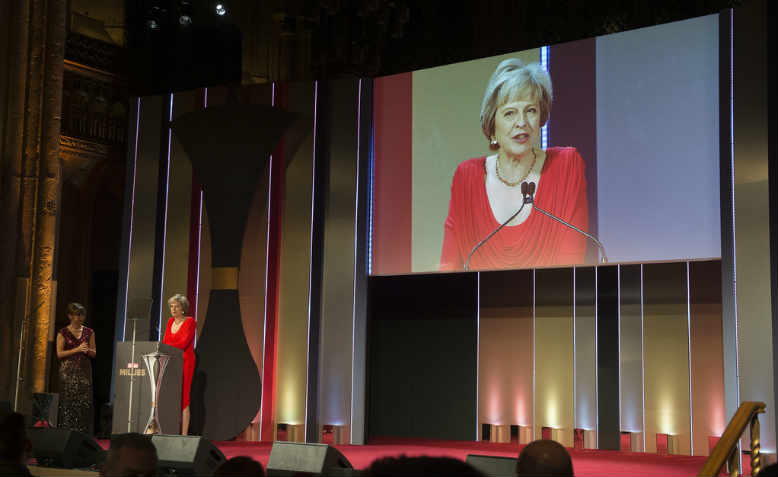 PM Theresa May at the Sun Military Awards 2016. Photo: Flickr/Jay Allen
PM Theresa May at the Sun Military Awards 2016. Photo: Flickr/Jay Allen
The din of ruling class squabbling should not distract socialists from their own agendas, contends Lindsey German
The sheer scale of difficulties faced by the British ruling class over Brexit was highlighted by Theresa May’s speech and the reactions to it. May’s speech made some concessions to her opponents. She agreed to a vote in parliament on the final deal of Brexit, she claimed that she wanted to get a rapid deal over existing EU citizens in Britain and that she did not want to be antagonistic to other EU countries.
But she also made clear that she wants to leave the single market, thereby prioritising limiting immigration over the economy and trade. This is opposed by many sections of business, economists and politicians, and despite her claim that such a move was implicit in the pre referendum debate, it most obviously was not.
Capital
Increasingly the debate between different sections of the ruling class and the establishment is what works best for capital, and how can they square the circle of the EU referendum outcome without damaging their profits and the society which has brought those dominating the debate on both sides such overwhelming benefits.
That shouldn’t be the argument of the left. We should not be arguing that one model of capitalism is good or better for us, but that this historic moment gives us a chance to pose a totally different scenario, one which benefits working people rather than the rich, which creates decent public services and develops jobs and work practices which are not part of the race to the bottom which characterises the neoliberal EU. If we cannot fight for that alternative, then whether we voted leave or remain, working class people are going to get shafted. That is the message not just from May’s speech, but from the whole debate around it.
It comes through particularly strongly in her veiled threats that if negotiations don’t go nicely, the UK will slash taxes for the rich and corporations, turning the country into a tax haven off the shores of Europe which will damage EU trade and economic prospects. We can guess what will accompany that: more zero hours and insecure work, less funding for the NHS and schools, wages kept to their present low levels, and the continuation of a low productivity economy where there is little investment in machinery and plant. Frackers and speculators will be encouraged instead.
Welcoming
May could have said today that the money promised by the official leave campaign to go to the NHS would be guaranteed by this government. She didn’t. She said she wanted to do something for EU citizens in Britain who have lived in uncertainty for seven months, but didn’t say what or when.
But the status quo hasn’t guaranteed these things either. Wages have fallen more than anywhere else in Europe other than Greece over the past decade and will continue to do so. There is a distortion of the economy toward the City of London, and a dire crisis in housing, health and education.
We need public investment, training and education, guarantees of standards of employment, trade union rights, and an emergency housing programme. There needs to be regional policy which helps some of the poorest areas, including decent jobs and transport infrastructure. There also has to be a fight against scapegoating, a commitment to welcoming migrants from all parts of the world.
The two models of globalisation – in or out of the EU – offer the opposite. Socialists have no interest in supporting either.

